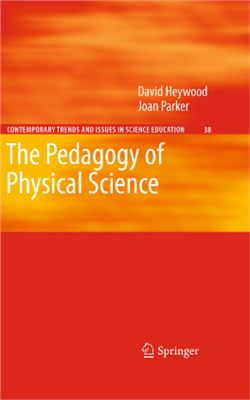Springer, Dordrecht, 2010, Pages: 197
In the science classroom, there are some ideas that are as difficult for young students to grasp as they are for teachers to explain. Forces, electricity, light, and basic astronomy are all examples of conceptual domains that come into this category. How should a teacher teach them? The authors of this monograph reject the traditional separation of subject and pedagogic knowledge. They believe that to develop effective teaching for meaningful leaing in science, we must identify how teachers themselves interpret difficult ideas in science and, in particular, what supports their own leaing in coming to a professional understanding of how to teach science concepts to young children. To do so, they analyzed trainee and practising teachers’ responses to engaging with difficult ideas when leaing science in higher education settings.
In the science classroom, there are some ideas that are as difficult for young students to grasp as they are for teachers to explain. Forces, electricity, light, and basic astronomy are all examples of conceptual domains that come into this category. How should a teacher teach them? The authors of this monograph reject the traditional separation of subject and pedagogic knowledge. They believe that to develop effective teaching for meaningful leaing in science, we must identify how teachers themselves interpret difficult ideas in science and, in particular, what supports their own leaing in coming to a professional understanding of how to teach science concepts to young children. To do so, they analyzed trainee and practising teachers’ responses to engaging with difficult ideas when leaing science in higher education settings.

